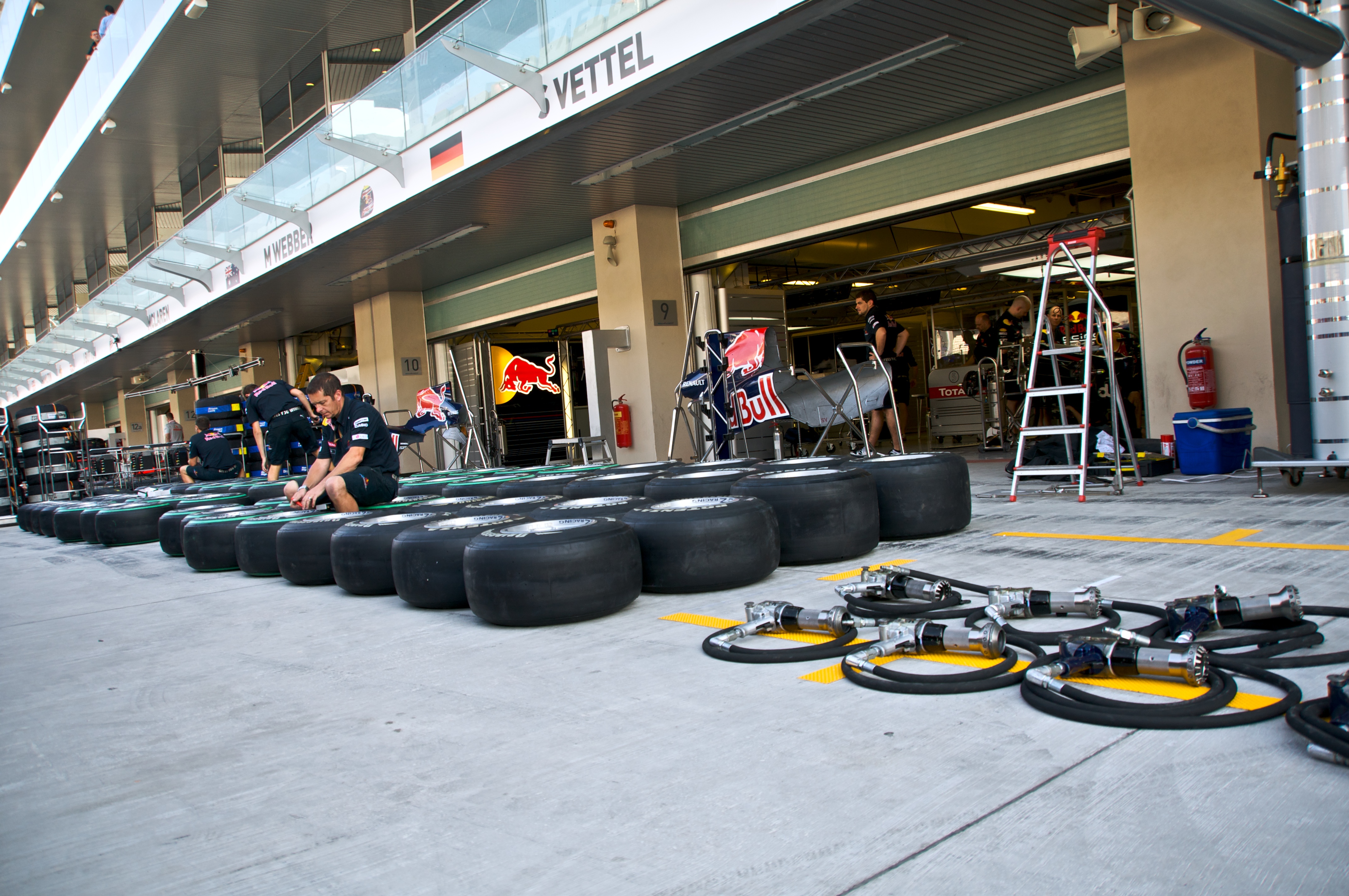F1 could possibly go through its biggest crisis since the near-split of the series five years ago. Fingers are being pointed at the new engine rules coming into force from this year on but - unfortunately - underperforming powerplants at the reliability department are merely a symptom of an inherited disease rather than the cause of a sickness.

Five years ago I was one of those fans who could write multiple compound sentences about F1 being "the pinnacle of motor sports" and "shouldn't be perverted by the global economical situation" because it is a "big boys' and big companies' game" and "go, watch NASCAR if you don't like it". But then you get slightly older and see a few things in the world and you realize that things just don't work the same way as a decade before, not even the largest businesses. You know this is happening from e.g. a World Drivers' Champion is not getting paid for his exploits or one of the most prestigious teams of the continental circus can't show off their livery not even two weeks before the first race because there aren't any done deals yet.
Every piece of news concerning F1's business side is about costs spiralling off and the reliability issues with the new engines on the sporting side these days with teams reporting not getting ready for the first race of the calendar. Those sorts of problems originate at the pre-season tests.
Because there is just isn't any relevant testing in F1 any more, which is probably the single most revealing flaws of the cost-reduced Grand Prix world championship of our times. A fundamentally misdirected business model as dictated by the regulations. Let me explain:
To break the dominance of RBR and Sebastian Vettel, Pirelli was given the job to make quickly-fading tyres for the 2013 season to add a new variable to the chess play of strategy during a Sunday Grand Prix. The idea sounded great on paper, except the fact that no one quite knew how these new compounds worked. Not even Pirelli themselves, because they were only allowed to use a few-year-dated F1 chassis and the teams got their first in-depth experience of them by around the 20th lap into the Australian Grand Prix. Then of course the first half of the season was spent trying to figure out how these tyres really worked, which was then followed by a series of spectacular rubber explosions at the Spanish and British GP, which resulted in a reversal to the previous compounds of tyres and thus Sebastian Vettel walking the field once more as usual.

Now, you can say the punctures happened because the teams went against Pirelli's advice and ran with a lower tyre-pressure and you're right. But one of the few things still making F1 great is pushing the envelope. The teams didn't really know what happened if they tried and went out with much less air in those Pirellis, they just knew they were faster doing so. And then excrement happened. Had they had proper testing opportunities, they would have known this would happen.
The greatest problem with this is not the accidents caused by it, but the variable introduced. The variable that was too tough to decipher for anyone involved, because there just wasn't enough time and opportunity. This meant that the best team performing best was not necessarily the one that did the homework best, bt the one adapting to the new circumstances the quickest. Which can be quite entertaining to an extent but it is just unfair.
Imagine you're an athlete preparing for the Olympic Games. You devote your life to become a gold medal winner at the 100m sprint. All those years of hard work, all that sacrafice you make and you manage to qualify. You're there in the arena, tens of thousands of people in the stadium and billions of people in front of the TV, ten minutes to the start of the race. Then some guys come down from the Olympic Committee and each of you is given a bag. "Here you go, that's your mandated footwear" - they say with the bag revealing a pair of rubber boots. "Put these on, jog around a bit and off you go in nine." Is the guy winning here the most prepared one?
The other issue with F1 is the recent trend of clamping down on everything that can cause an advantage to one car over another. Double diffuser, hot-blown diffuser, cold-blown diffuser, F-duct, double DRS, pipes coming out of the middle of the car and alleged traction control system to name a few of those ingenious technological advancements given the rules of recent years. The problem here is that while these solutions are really clever in their own right, they don't have the tiniest relevance to technology itself. With regulations being so tight the tiniest advantage on one car can actually make the difference between the champion winning ride and the midfielder as the rule makers spot on realized. But to make those small differences work, you have to spend millions and millions of dollars at the drawing board, in the wind tunnel, etc. And that small difference could quite be a flap half an inch shorter or slightly more angularly curved. All that money burned to make some pieces of plastic do something differently. But the REAL issue is that all these have absolutely no relevance outside of F1's tiny-tiny little world.
So take the tyre-related example with this latter one and draw a conclusion:
Money in F1 is spent all the wrong ways. Either on things that may or may not be working - they don't know, they can't try it; they just build it and pray it works -, or on things that cannot be translated to anything else but F1's little world at that point of time resulting in a ban or a bin.
And now we're coming to 2014.
Everything is new. New powerplants with no relevant testing behind them. The first major problem did not blow up by the time the season got to Europe, but on the very first day of testing and it continued on for the rest of the proving for most of the teams. They haven't even got to the paddock of the first track on calendar and F1 is in a crisis. Either they chose to put on a show that would probably result half the cars scoring DNFs either because of engine failures or fuel running out or by converting to a regularity rally with cars playing it safe, cruising around slowly, making themselves look like an after party for GP2.
No one knows what is going to happen, no one has the slightest idea how these engine would perform in a proper racing situation, because they couldn't test anything relevant. RBR had a hard time putting one lap together in Spain. Billions of dollars spent on the new technology and there isn't a bit of information that would tell anything more than a coin would in a 'heads or tails situation'. A few races like this and there's going to be a riot. And then what? They can't revert to the old engines to fix the problems of the new ones in the meantime as they did with Pirelli tyres. They would have to constantly push FIA to let them test, but then the rest of the teams won't be as forgiving.
Seriously: this could blow up in someone's face big time and would create a massive trench between those who made it and those who didn't. And if the latter ones can't cut a deal with the FIA circumventing the rest of the teams, F1 could get to the edge of split as they once got five years ago with the budget-restraining ideas.
So here's a thing: technology is as good as effective it is. If you've invented a fusion reactor, don't start by building one next to a metropolis. In other words, if the FIA wants to control finance in the future, it must take much harsher measures and more conservative methods.
I do believe that a budget cap at this time sounds even more sensible than ever. Take your money and do whatever you want with it: you even spend it on more development or making your car reliable by testing it more.
Even better: pay Dallara a big sum of cash to build a common chassis for the whole field and then the teams can buy engines and build aero bits they would like. It sort of sounds like IndyCar, but then IndyCar had to come back from the dead at one point.
Do not wait , F1, until the same happens, think wisely, measure your future.













nice post.
ReplyDeletehttp://www.newtoluxury.com